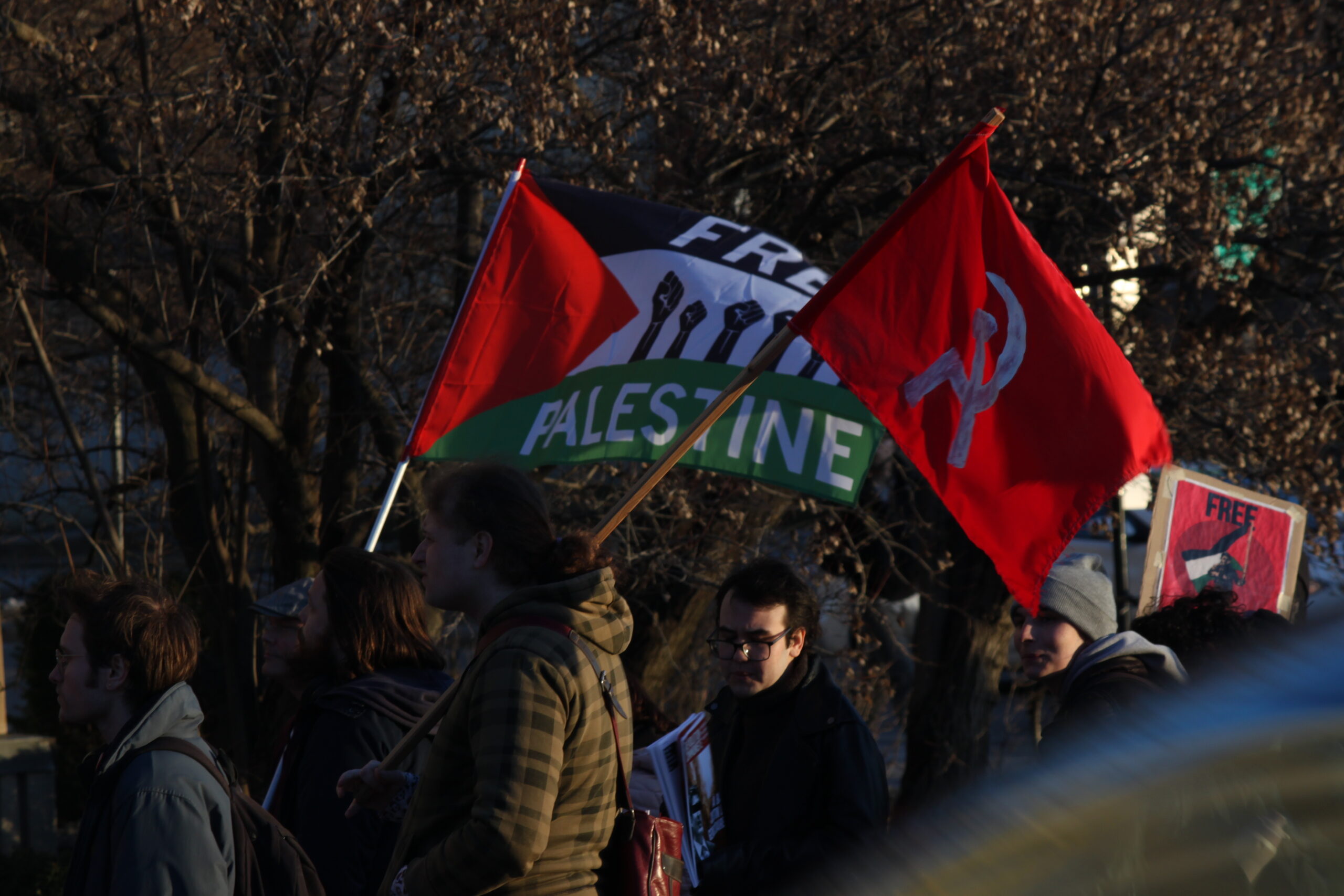The Revolutionary Communist Party came together in defense of Palestinian solidarity and the right to protest peacefully.
During the week of March 10, the Revolutionary Communist Party held two demonstrations in support of Palestine in Montreal. The first was on Tuesday, March 12 in front of Premier Justin Trudeau’s constituency office to protest the federal government’s decisions regarding Palestine and the selling of land on the West Bank.
“These capitalist regimes have decided to bet everything on genocide on the Palestinian people,” said Fehr Marouf, a member of the Revolutionary Communist Party.
According to Marouf, this was the first time the party had organized a demonstration directly in their name. The protest was small, with around 50 attendees, but Marouf believes it is the start of something, even if it’s just the party and their supporters for now.
The Trudeau government has been placed under scrutiny for sending military aid to Israel, something that may go against Canadian export law stating that Canada may not supply weapons if they may be used to break international law. In light of this, new export permits to Israel have been frozen indefinitely, according to CTV news.
The Trudeau administration also significantly changed a motion put forth by the New Democratic Party (NDP) to recognize Palestine as a state. What the Liberal party offered was a conditional acceptance based on the goal of the two-state solution, which would allow Israel to keep existing alongside Palestine as opposed to the landback goal that the RCP is calling for.
The second demonstration held on Friday, March 15 was called to protest the Quebec government injunction against pro-Palestinian protests outside Jewish institutions in Côte-des-Neiges-Notre-Dame-de-Grâce. It took place in Girouard park. Less than 10 people attended, but passers-by would stop and ask questions.
The Revolutionary Communist Party came together in defense of Palestinian solidarity and the right to protest peacefully.
“There’s been a process of many years of land being taken up by settlers in this area. Where it looks like—if you look on a map—it looks like a big chunk of land, but over time, bits and pieces have been eaten up,” said Calvin Brett, a member of the party.
Criticism of the pro-Palestine movement arose. Trudeau has denounced violence from both sides, something that has frustrated certain activists, as they feel this doesn’t acknowledge the issue.
“No one should in this movement—the Palestine movement—be against someone going to pray or engaging in their culture in any way they see fit,” Brett said. “The actual continuation of this genocidal onslaught in Palestine was continuing here in our neighbourhood.”
Friday’s rally was proposed by fellow party member Tony Miller-Smith after the injunction was announced. He believes he should be able to protest in the neighbourhood he lives and works in. Miller-Smith also stressed the importance of collective action in the fight to free Palestine.
“If you want to fight to free Palestine, you should help us build a Revolutionary Communist Party that can help to overthrow the Quebec capitalists and the Canadian capitalists,” he said.
